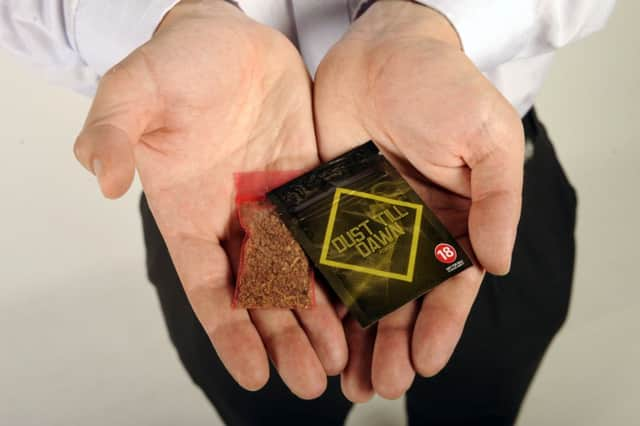Scottish shops face legal high crackdown


A series of recommendations made in a report published yesterday by a group of independent experts included allowing local authorities to impose conditions on the sale of new psychoactive substances (NPS) when issuing entertainment and other licences.
Venues where the substances were found to have been taken could face losing their licences and be hit with fines of up to £20,000, under existing licensing rules.
Advertisement
Hide AdAdvertisement
Hide AdThe Scottish Government established the expert group last year to consider the powers available to tackle the sale and supply of legal highs. The group used its report to warn of the “significant challenge” associated with their sale online, including on the so-called “dark web”, internet content not listed by normal search engines.
Other recommendations include establishing a national centre of excellence in forensic analysis to lead the detection and identification of NPS in Scotland and the possibility of legislation similar to that in Ireland, which has criminalised the sale and supply of legal highs.
Community safety minister Paul Wheelhouse said: “It has become increasingly clear over the past few years that the danger of new psychoactive substances represents a significant challenge for our health, justice and third-sector organisations.
“The fact their ingredients are unknown and untested is particularly worrying, and we have seen tragic incidents where these substances have caused huge harm to users, even death.
“There is no silver bullet to tackle the problem, however, the excellent partnership working that already exists across Scottish agencies, when combined with this valuable research, means we are in a position to make strong progress to keep our communities safe.”
Legal highs cannot legitimately be sold for human consumption, so are often marketed as bath salts, plant food or pond cleaner. Where they have been implicated in deaths, they have usually been taken with alcohol and other drugs. Figures last year showed the number of drug deaths in which legal highs were present had doubled in a year.
Professor Alison Britton, from the Law Society of Scotland, said: “We were delighted to be part of this review group and its consideration of this ever-changing and challenging area.
“It is important we do everything we can to ensure we protect those who are most vulnerable, through the sharing of information and an effective legislative framework.”
FOLLOW US
SCOTSMAN TABLET AND MOBILE APPS